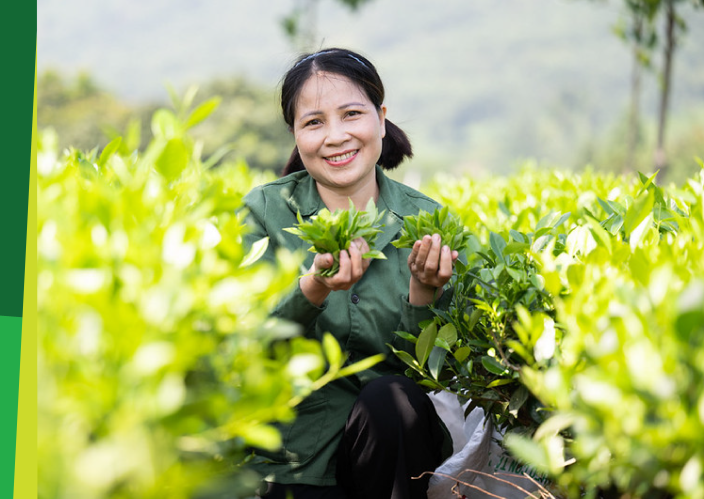Our aim is to protect and secure the livelihoods of smallholder farmers and vulnerable people. We achieve this by working with small-scale producers and the private sector to improve access to resources, such as land, water and finance. To ensure vulnerable groups are able to benefit from economic development, we engage with our government partners to ensure development policies are inclusive and sustainable.
We also work to enhance the resilience of vulnerable communities in high-risk areas. This means they are better able to adapt to disasters and mitigate the effects of climate change, and are less impacted by extreme weather events. When natural disasters occur, resilient communities and are able to recover more quickly.
What we want to achieve
Our Secured livelihoods and Resilient communities Goal centres on achieving:
- Secure and improved income and fair share of benefits for female and male Small-Scale Producers (SSPs) and Private Sector (PS) and vulnerable groups including ethnic minorities, poor people, disaster prone communities...
- Access to and sustainable use of production resources such as land, water, finance/credit and innovation/environmentally friendly technology.
- Vulnerable communities and private sector will have enhanced resilience to climate change through improved capacity on climate change adaptation and mitigation, and disaster risk reduction.
- Accountability for sustainable and inclusive development
- Government and private sectors at all levels are accountable for inclusive, sustainable, development policies policies (including Nationally Determined Contributions, National Adaptation Plan(NAP), new business models, feminist perspectives) for small-scale producers and vulnerable groups to benefit from sustainable production.
How we achieve it
This will be achieved through:
- Enhance capacity for and participation from female and male SSPs, PS, vulnerable groups, and private sector in natural resource management, including land, water, forest, ecology system and biodiversity
- Ensuring accountability of Government agencies in policy development and implementation protecting right of SSPs, PS and vulnerable groups on access to and sustainable use of production resources (market, land, water, natural resources and finance/credit)
- Promoting linkages and partnership between SSPs, PS, vulnerable groups and other stakeholders i.e. private sectors, social organizations, extension services, training and research institutions.
- Promoting women’s economic and political leadership in agribusiness
- Developing and nurturing environment-friendly technology/innovations that are adapted to SSPs, PS, and vulnerable groups
- Advocating government policy on climate change adaptation under NAP and mitigation under NDC with a focus on renewable energy and greenhouse gas emission reduction
- Holding private sector accountable for promoting and practising responsible and inclusive business in supply chain governance, CSR, sustainable production, building community resilience to climate change...
- Facilitating capacity building among humanitarian actors, through promoting local humanitarian leadership for improved disaster preparedness and response
Our projects
- Improved social protection and decent work for women farmers and informal labourers in shrimp and rice value chains in Vietnam (DGD) (2022 - 2026)
- Strengthening Disaster Risk Management and Climate Change Adaptation Capacity in the Mekong Region (SCR) (2023–2025)
- Biomass Gasification Technology - Sustainable Energy Solution for Agri-Food Processing and Waste Management in Rural Areas of Vietnam (BEST) (2020 - 2024)
- Inclusion Project - Phase 2 (IP2): Mekong Regional Water Governance Programme (MRWGP) (2020 - 2024)
- Enhancing the Export Competitiveness of Vietnamese Small and Medium Enterprises in Spice, Fruit and Vegetable Sub-Sectors (SFV-Export) (2022 - 2023)
- Gender Transformative & Responsible Business Investment in South East Asia (GRAISEA) Phase 2 (2018 - 2023)
- Regional CSO Seafood Advocacy and Influencing – Vietnam (2021 - 2022)
- Inclusive and Sustainable Clam and Bamboo Value Chain Development in Vietnam (SCBV) project (2018 - 2022)
- People Protecting their Ecosystem in the Lower Mekong III (PEM III) (2019 - 2021)
Publications
Placing MSMEs at heart of ASEAN’s economic recovery
How Vietnamese Smallholders Overcame the Twofold Crisis
Photobook "Dialogues with rivers"
The humanitarian relief and charity process
Stories
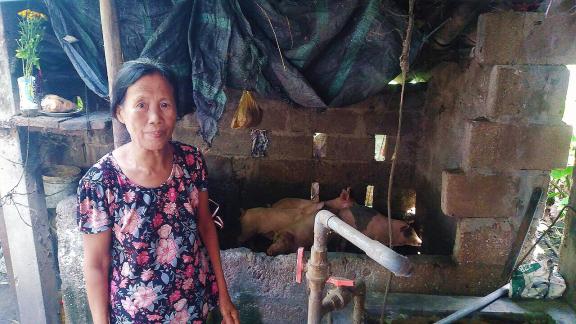
Mai Thi Cam, the female farmer participating the project of restoring and enhancing resilient livelihoods after COVID-19
The dawn after storms
Mai Thi Cam, a poor female farmer from Giang Hai Commune in Thua Thien Hue Province, has faced considerable hardships since her youth. As a single mother, she raised her disabled daughter and later took on the care of her grandchild. Her life grew even more challenging when the COVID-19 pandemic broke out, severing her already sporadic income from odd jobs.
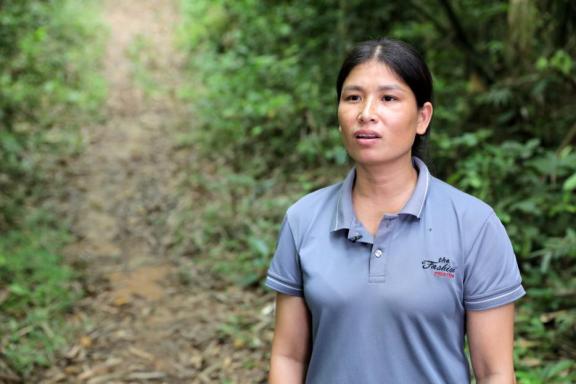
Ms. Luong Thi Tien, leader of 40 small-scale producer groups growing and harvesting bamboo in Muong Hinh village, Dong Van commune, Que Phong district, Nghe An
Bamboo is the now and the future
Bamboo forests in Nghe An are vital to local livelihoods but face exhaustion due to unsustainable practices. The SCBV project introduced FSC certification, teaching locals sustainable logging and forest management. This led to forest regeneration and increased income, empowering the community to protect their "ATM machine" for the future.
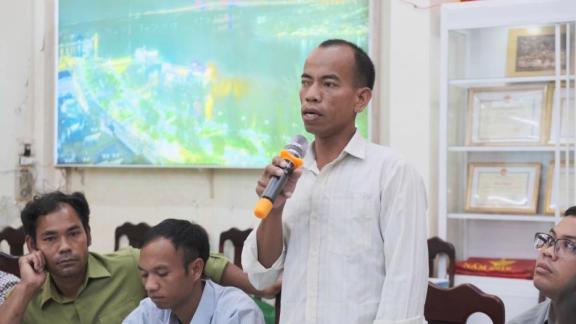
Mr. Ho Van Thang confidently discussed and shared his opinions during a field trip in the Mekong Delta within the framework of the IP 2 project
Ripples of Change: Empowering Lives through Water Management
Life in Can Te village relies on traditional farming along the A Sap river. The "Enhancing Women's Capacities" project, led by Mr. Ho Van Thang, promotes sustainable water resource use and livelihoods. Thang’s cage fish farming model boosted profits and community well-being, emphasizing women's participation and local collaboration for sustainable development.
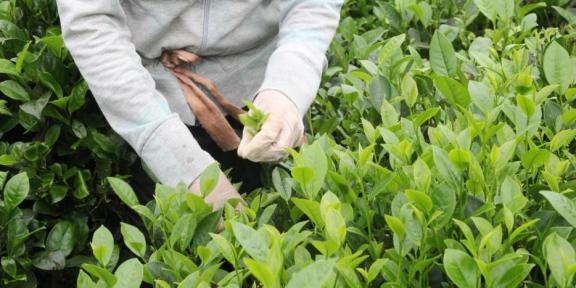
Tea in a field in Thai Nguyen province
Green technology as driving force for local agriculture
Mr. Dinh Quy's Tran Nam Clean Tea Cooperative transitioned from firewood to biomass gasification technology for processing tea, reducing smoke and costs. Supported by the BEST project, this change led to cleaner production, increased profits, and improved working conditions, showcasing the benefits of sustainable energy solutions.
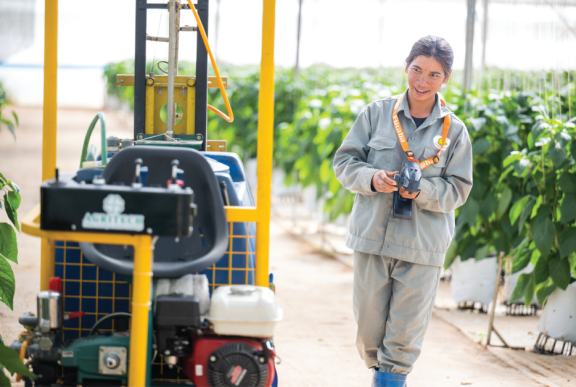
A worker in Vien Son company
Putting Human in the Center: A Sustainable Path for Businesses
Vien Son Company, a vegetable exporter with nearly 20 years of experience, focuses on responsible business practices, sustainability, and fair pricing. They train farmers, reduce chemical usage, and invest in employee training and semi-automatic technology. Achieving BRCGS certification, they now export to Europe, exemplifying their commitment to a fair, sustainable value chain.
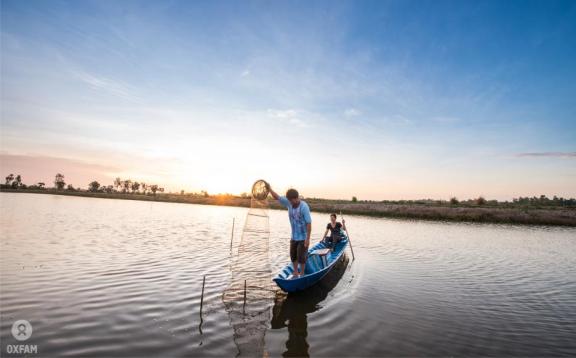
A farmer couple collecting shrimp in their field
‘Shrimply the best’: A new form of inclusive contracting for seafood
Vietnam’s shrimp farming faces challenges despite its global leadership, mainly due to reliance on intermediaries and unreliable supply chains. GRAISEA and ICAFIS introduced a contract farming model with SVS, ensuring direct procurement from cooperatives, adherence to ASC standards, and improved working conditions. This model set a precedent for the broader shrimp sector.
